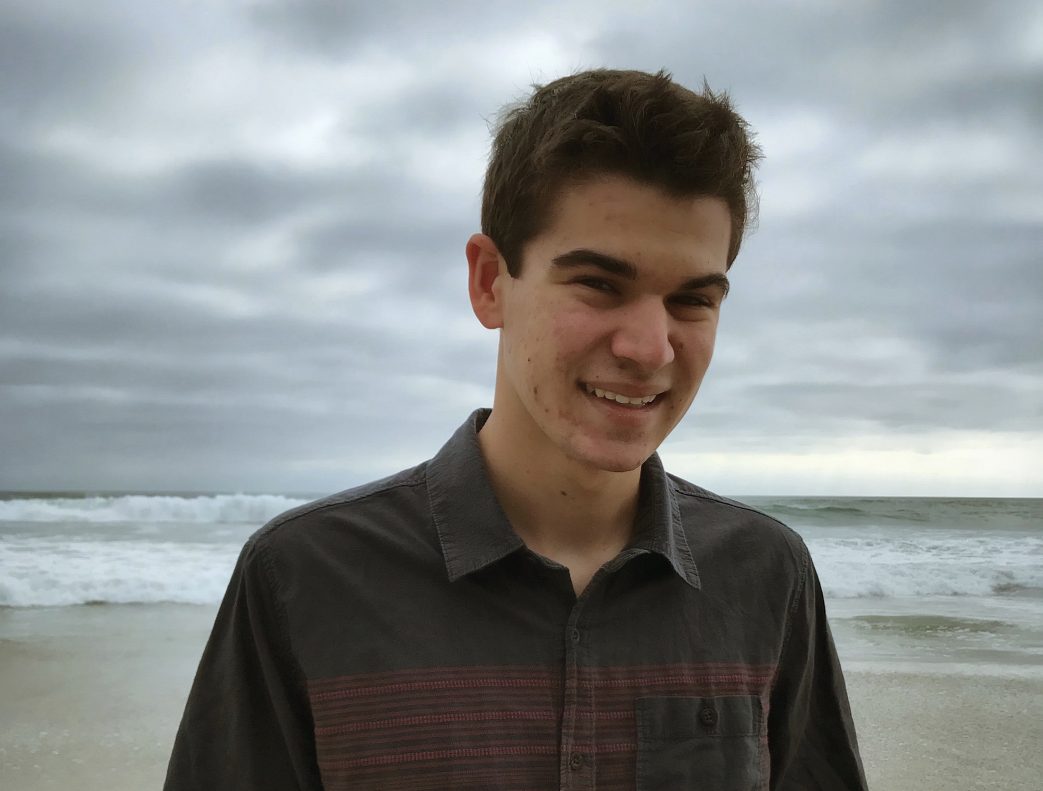This week the center is highlighting Summer Undergraduate Research Fellow (SURF), Joshua Pawlak. Joshua is an undergraduate physics major at The California Institute of Technology (Caltech) and is working under the guidance of center director Mark Merrifield.
Q: What opportunities have you been given through the SURF program? What excites you most?
A: Caltech’s SURF program is a great opportunity for undergraduates like myself to gain experience working in a real research setting, while also learning more about a field and the tools used in it. We also have the chance to share our work with peers through a final report and an oral presentation.
For me, the most exciting part of the opportunity is to perform research and look at phenomena that haven’t necessarily been looked at before. It’s exciting to know that you’re doing something new. The chance to work under the guidance and mentorship of someone as knowledgeable as Dr. Mark Merrifield is also a huge opportunity; there’s so much to learn from experts in the field like him.
Q: What does your summer research project entail?
A: My project has been focused around sea-level trends in Southern California, and how those trends can be observed and predicted with various measurements and variables. Right now, we’re interested in looking at sea-level data measured by coastal tide gauges in the region and examining how the patterns that show up in local data can be used to predict larger-scale, regional trends, such as sea surface temperature and currents.
Q: What aspect of your research helps us better understand or adapt to climate change?
A: Understanding how we can use different local measurements as indicators of larger-scale ocean processes will help build better scientific models of Southern California. This, in turn, will improve forecasts for how we can expect regional ocean processes to evolve over the next several decades as the sea-level rises.
While existing models can predict coastal sea-levels with reasonable accuracy, establishing a connection between sea surface height and sea surface temperature would potentially improve predictions of other climate-related phenomena, such as marine heatwaves. Establishing this linkage is one of the goals for my project.
Q: How did you get interested in your specific topic, or science in general?
A: Most of my interest in science and oceanography stems from my father, a professor and researcher in fluid dynamics. From an early age, I had the chance to explore his lab as he worked; I can remember “discovering” Bernoulli’s principle there as I played with pressurized air and ping pong balls. I’m sure he explained it to me then, and I’m equally sure that I was more interested in watching the ping pong ball hover in midair than listening to his explanation, but experiences like that gave me an interest and curiosity for science that I continued to pursue as I grew up. Apart from that, I’ve lived near the coast for all of my life and I think the interest in studying it is only natural!
Q: What are some surprising things that people might not know about you?
A: I enjoy nature and being outdoors, and like mountain biking and backpacking to this end. I’m also a lover of music and play a few instruments myself. I currently play clarinet in a couple of classical music ensembles at Caltech and played saxophone in a small cover band for a little while.. although I can’t say we were any good!
Thanks for sharing, Joshua!


